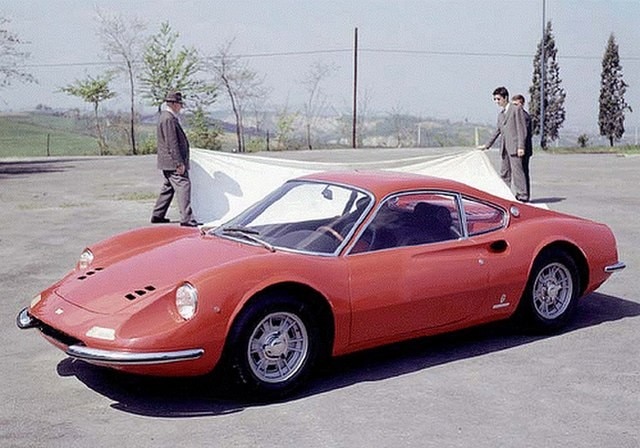In the beginning, there was Stabilimenti Farina, a pioneering coachbuilding firm founded in 1906 in Turin by Giovanni Farina – the father of Nino, who would go on to become the first Formula 1 world champion. The company remained in business until 1953, shaping generations of designers as they navigated two world wars and collaborated with major manufacturers like Fiat, Lancia, Ferrari, and Alfa Romeo, as well as prestigious international marques such as Rolls-Royce, Hispano-Suiza, and Jaguar.
Among the designers who honed their craft there were Pietro Frua, Mario Felice Boano, Giovanni Michelotti, Alfredo Vignale, and Giovanni Battista Farina – better known as Pinin, a nickname given to him for his striking resemblance to his father, Giuseppe.

In 1930, thanks to a generous loan from his wife’s wealthy aunt, Pinin decided to go independent, founding Società Anonima Carrozzeria Pinin Farina. He was joined by minority partners, including Vincenzo Lancia – who had developed a close friendship and mutual respect with Pinin during Lancia’s collaboration with Stabilimenti Farina – and Gaspare Bona. This company would later become the world-renowned Carrozzeria Pininfarina.
What many don’t realize, however, is that Pinin Farina was not a designer himself. He never personally sketched any of the cars featured in this article.

For the first decade, Pinin Farina worked almost exclusively with Lancia, producing prototypes, limited editions, and small production runs, mainly built on Aprilia, Astura, and Augusta chassis. When the war ended in 1945, operations resumed, and from the 1950s onward, the company’s reputation soared – thanks in part to Pinin’s son, Sergio, and his son-in-law, Renzo Carli, husband of Pinin’s daughter, Gianna. After Stabilimenti Farina went bankrupt in 1953, many of its skilled workers were absorbed into Pininfarina.
What many don’t realize, however, is that Pinin Farina was not a designer himself. He never personally sketched any of the cars featured in this article. But he had an extraordinary eye for aesthetics. Thanks to the experience he gained working alongside metalworkers and coachbuilders at his brother Giovanni’s company, he had an innate talent for refining, evolving, and perfecting automotive designs – first on paper, then through scale models commissioned by clients.

Opening image: Ferrari Berlinetta Boxer (1973). Courtesy Wikimedia Commons

Technology and design for innovative washrooms
Fumagalli, a leader in the washroom industry, offers innovative and customizable solutions, combining design, efficiency and sustainability for contemporary and functional environments.




.jpg.foto.rmedium.png)










